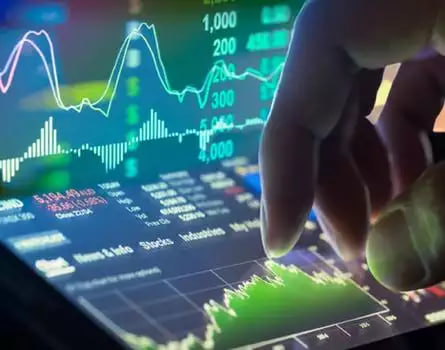France's Budgetary Tightrope: Navigating Political Turmoil and Economic Uncertainty
Meta Description: Deep dive into France's recent emergency budget, the political fallout following the Borne government's downfall, and the looming economic challenges facing the nation. Explore the implications for French citizens and the global economy. #FrenchPolitics #FrenchEconomy #BudgetCrisis #PoliticalInstability #LePen #Borne
The French political landscape is, to put it mildly, a rollercoaster. Just when you think things have settled, bam – another unexpected twist. This time, it's the dramatic collapse of the Borne government and the subsequent scramble to pass a temporary budget, leaving many wondering: what's next for France? This isn't just another political squabble; it's a crucial moment that could shape the nation's economic trajectory for years to come. This article peels back the layers of this complex situation, offering an in-depth analysis from a seasoned observer of French politics and economics. We'll dissect the emergency budget, explore the reasons behind the government's fall, examine the potential consequences, and even venture a guess – albeit cautiously – at what the future might hold. Forget the dry, academic pronouncements; we're diving headfirst into the real-world impact of this unfolding drama, exploring the human element behind the headlines. Prepare for a gripping narrative that seamlessly blends political analysis with economic insight, delivering a compelling account of France's current budgetary crisis and its far-reaching implications. This isn't just a story about numbers and policies; it's a story about people, their livelihoods, and the future of a nation. So buckle up, because this is going to be a wild ride!
French Emergency Budget: A Deep Dive
The recently passed emergency budget – a stopgap measure, if ever there was one – allows France to continue functioning after January. This wasn't a surprise; the writing was on the wall following the Borne government's spectacular downfall. Essentially, this temporary measure allows the government to continue collecting taxes and borrowing money until a proper 2025 budget can be finalized. Think of it as a financial band-aid, a temporary fix for a much larger wound. But what exactly does this mean for the average French citizen?
The immediate impact will likely be minimal. Taxes will continue to be collected, and essential government services will remain operational. However, the long-term implications are far more uncertain. The lack of a proper budget for the entire year creates significant uncertainty for businesses and investors. This uncertainty can stifle economic growth, potentially leading to job losses and reduced investment in crucial sectors.
The passage of this interim budget was far from seamless. It was a testament to the deep political divisions that currently plague France. It speaks volumes about the power struggle between the far-right, led by Marine Le Pen, and the left-wing parties, and their success in toppling the government – a truly seismic event. The political landscape has become incredibly fractured, making consensus-building on crucial matters exceptionally challenging.
The Borne Government's Downfall: A Political Earthquake
The collapse of the Borne government wasn't a sudden event; it was the culmination of months of simmering discontent. The proposed 2025 budget, with its controversial elements (specific details of which are beyond the scope of this article, but readily available through reputable news sources like Le Monde and Reuters), ignited a firestorm of opposition. The government’s failure to address concerns effectively, coupled with persistent economic headwinds, created a perfect storm that ultimately led to its demise.
The vote of no confidence was a clear indication that the government had lost the support of a significant portion of the National Assembly, highlighting the deep fissures in French politics. This isn't simply a matter of differing political ideologies; it's a reflection of broader societal anxieties about the economy, the cost of living, and the future of France itself. The rise of the far-right, symbolized by Marine Le Pen's growing influence, underscores a profound sense of discontent among a significant segment of the French population.
The situation is incredibly volatile, and the coming months will likely witness significant political maneuvering as various factions vie for power and influence. The next government will inherit a challenging economic landscape and a deeply fractured political system. This is a defining moment for France, one that will have lasting repercussions.
Economic Challenges Facing France
France's economic outlook is clouded by a number of significant challenges. High inflation, rising interest rates, and global economic uncertainty all contribute to a complex and uncertain picture. The government's emergency budget offers a temporary reprieve, but it doesn't address the underlying economic problems. The crucial questions remain: how will the next government address these challenges? What policies will they implement to stimulate growth and create jobs? How will they manage the rising national debt?
The answers to these questions are crucial, not just for France, but for the wider European Union and the global economy. France is a major player on the world stage, and its economic stability is vital for regional and global prosperity.
The Role of Marine Le Pen and the Far-Right
Marine Le Pen's role in the downfall of the Borne government cannot be understated. Her party, the National Rally (RN), played a pivotal role in the vote of no confidence, highlighting the growing influence of the far-right in French politics. This poses a significant challenge for the future. Will the next government be forced to negotiate with the RN to secure a stable majority? This possibility presents a dilemma for many centrist and left-wing parties, who have historically opposed the far-right’s policies. The ongoing political realignment underscores the radical shift in the French political landscape, one that has caught many by surprise.
What Lies Ahead? Uncertainty Reigns Supreme
Predicting the future is always a risky business, but based on current trends, several scenarios seem plausible. We could see the formation of a new government, possibly a coalition, that seeks to navigate the economic and political challenges facing the nation. Alternatively, we could witness further political instability, with repeated elections and further government collapses.
The challenge for the next government will be immense. They will need to address the immediate economic challenges, while also attempting to heal the deep divisions that have split French society. The process will be fraught with difficulty, requiring skillful political maneuvering and a willingness to compromise.
Frequently Asked Questions (FAQs)
Q1: What exactly is an emergency budget?
A1: An emergency budget is a temporary spending plan that allows a government to continue operating when a regular budget hasn't been approved. It's a short-term solution to avoid a government shutdown, but it often lacks the detail and long-term planning of a regular budget.
Q2: Why did the Borne government fall?
A2: The Borne government fell due to a combination of factors, including a controversial 2025 budget proposal that sparked widespread opposition, persistent economic challenges, and the growing influence of the far-right. A vote of no confidence sealed its fate.
Q3: What are the biggest challenges facing the next French government?
A3: The next government will face significant challenges, including managing high inflation, addressing rising interest rates, navigating global economic uncertainty, and dealing with the deeply divided political landscape.
Q4: What is the role of Marine Le Pen in this situation?
A4: Marine Le Pen and her party, the National Rally (RN), played a critical role in the downfall of the Borne government, highlighting the growing influence of the far-right in French politics. Their actions will significantly affect the formation and policies of any future government.
Q5: What are the potential long-term consequences of this situation?
A5: The long-term consequences could include slower economic growth, increased political instability, and further societal divisions. The outcome will depend largely on the actions and policies of the next government.
Q6: What can I do to stay informed about this situation?
A6: Stay updated by following reputable news sources such as Le Monde, Reuters, Associated Press, and BBC News. These outlets offer comprehensive coverage of French politics and economics.
Conclusion: A Nation at a Crossroads
France is undeniably at a critical juncture. The collapse of the Borne government and the passage of an emergency budget highlight the profound political and economic challenges facing the nation. The path forward remains uncertain, but one thing is clear: the next government will face immense pressure to deliver solutions that address the concerns of the French people and stabilize the nation’s economic trajectory. The coming months will be crucial in determining France's future course, and the world will be watching closely. The situation demands our attention, not just as political analysts, but as concerned global citizens. The ripple effects of this crisis extend far beyond France's borders, underscoring the importance of understanding and engaging with this unfolding drama.



